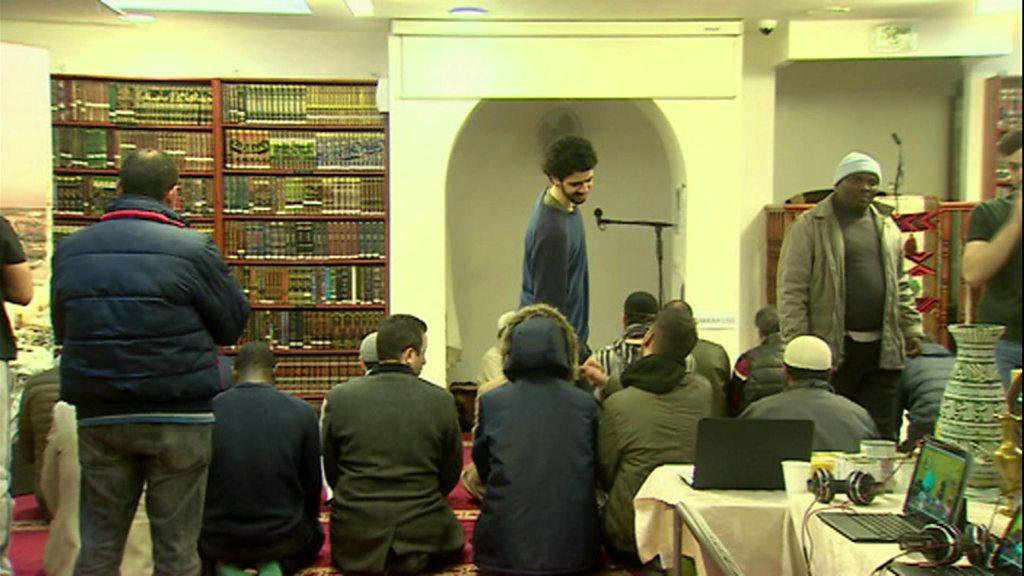Cardiff mosque goes plastic-free over Ramadan
- Published
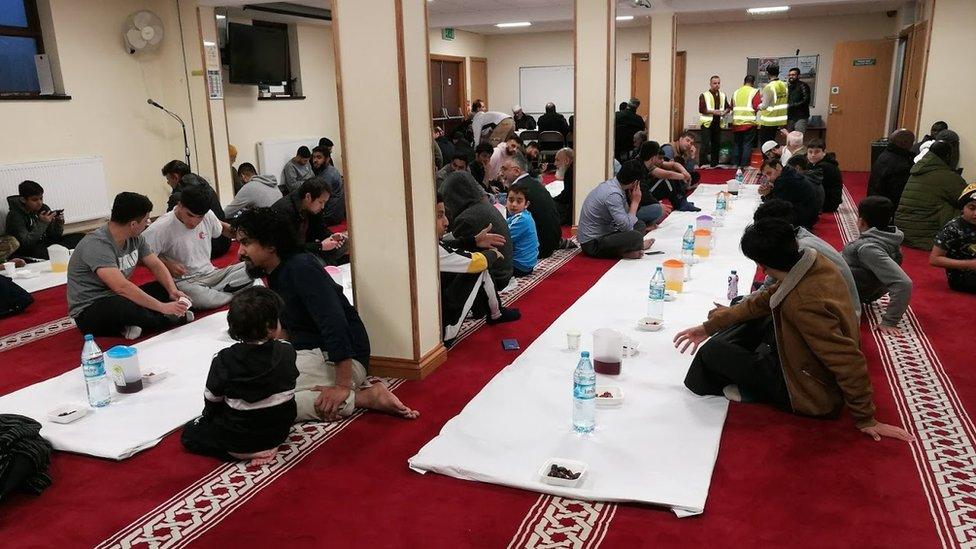
Hundreds of worshippers gather to eat together over Ramadan
One of Wales' largest mosques has gone plastic-free and hopes to save on 70,000 items over Ramadan alone.
During the month-long observance, Muslims are given the Iftar meal, which ends the daily fast at sunset.
For this, the Darul Isra mosque, Cardiff, used to order 30,000 knives, forks and spoons, 15,000 plates, 15,000 cups and 10,000 bottles of water.
The Muslim Council of Wales hopes the rest of the 20 mosques in Wales will adopt its new green policies.
The mosque in Cathays has been welcoming 400 people a day to eat over Ramadan while thousands are members of the congregation.
The new policy was launched after manager Dr Mohammed Gaber became "acutely aware of the impact this one mosque alone was having on the Welsh eco-system by using so much non-degradable plastic every year".
Remembering there were 20 Welsh mosques "doing the same", it was decided 2019 would be the year it would go "totally green and completely ban the use of plastics".
The first issue addressed was the 10,000 bottles of water ordered in to keep worshippers hydrated during the extended night prayers.
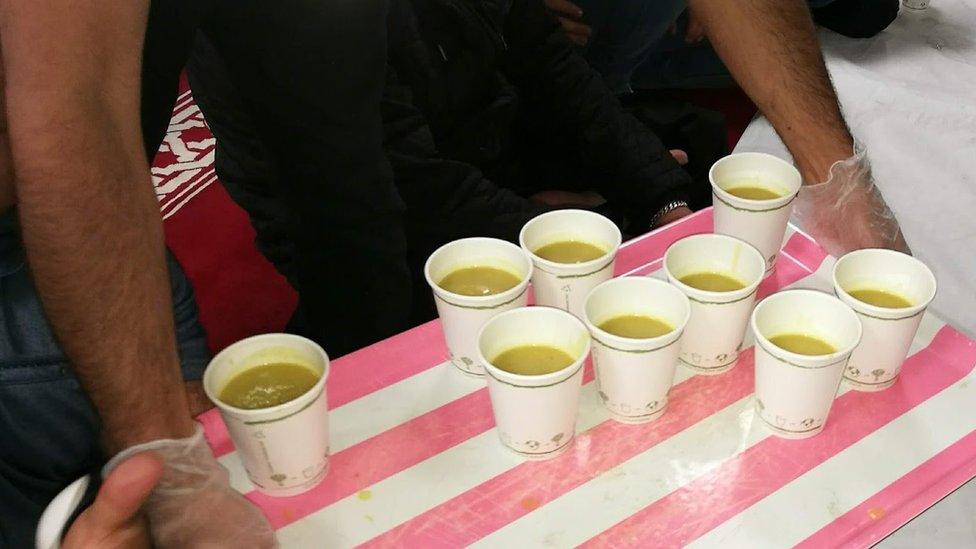
Compostable cups are now being used instead of plastic ones
Welsh Water provided reusable plastic drinking bottles to replace these and they can be filled at a fountain in the mosque.
Biodegradable cutlery, plates and cups were also ordered to be used instead of those made of plastic.
During the first week of Ramadan, which began at the start of May, the congregation was educated about the impact on the environment of plastic waste and encouraged to use reusable bottles.
The Muslim Council of Wales is planning a meeting with leaders of all Welsh mosques later this year where they will discuss how all can adopt the policy.
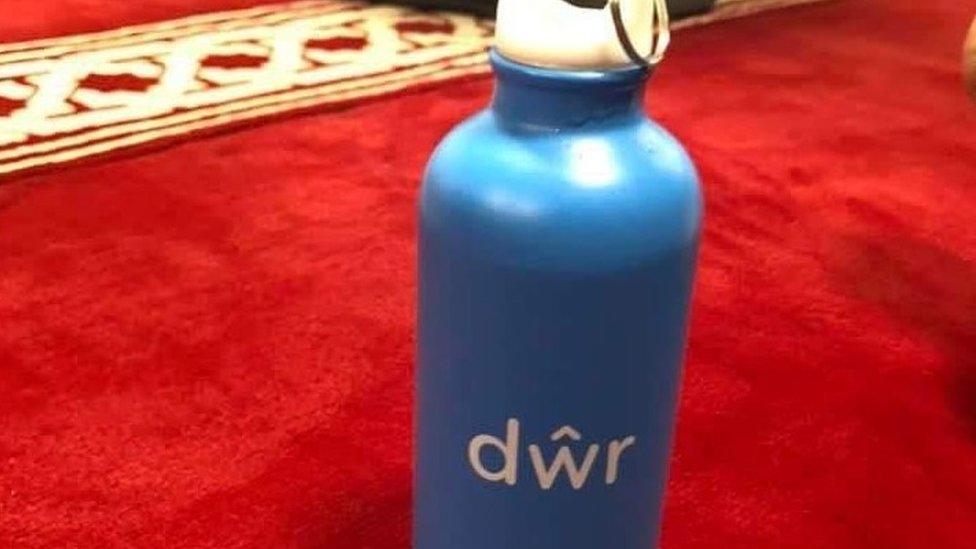
Welsh Water has provided reusable bottles to help cut waste
- Published8 May 2019
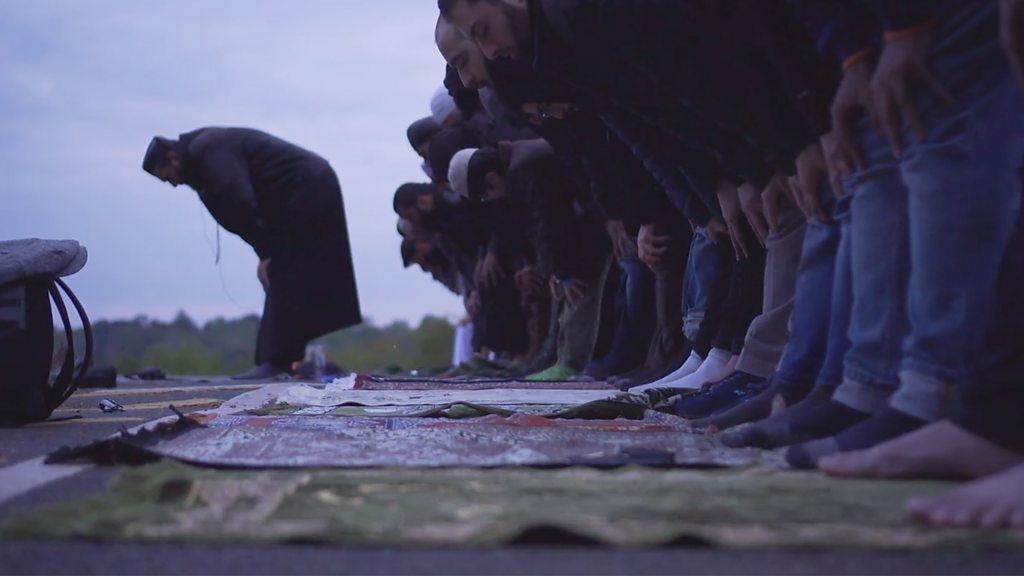
- Published27 May 2018
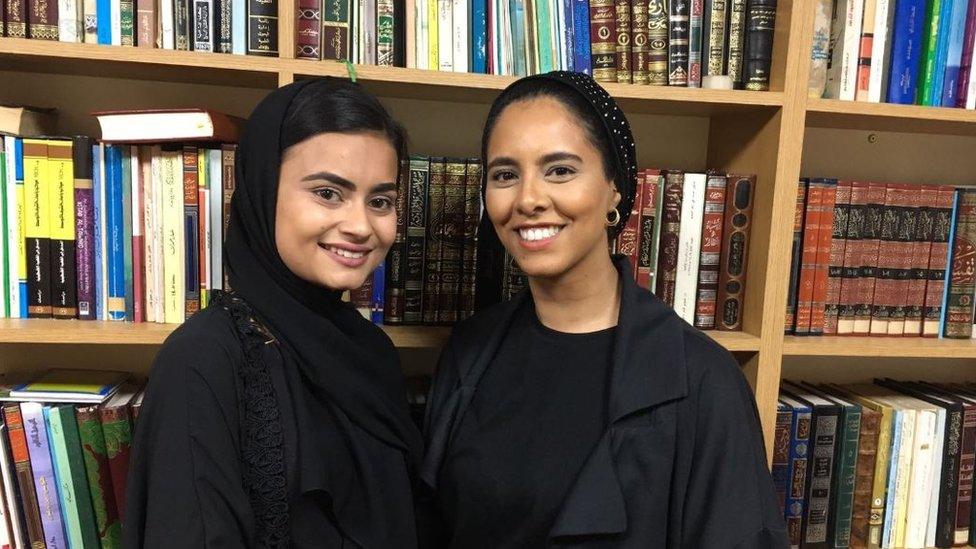
- Published6 February 2017
